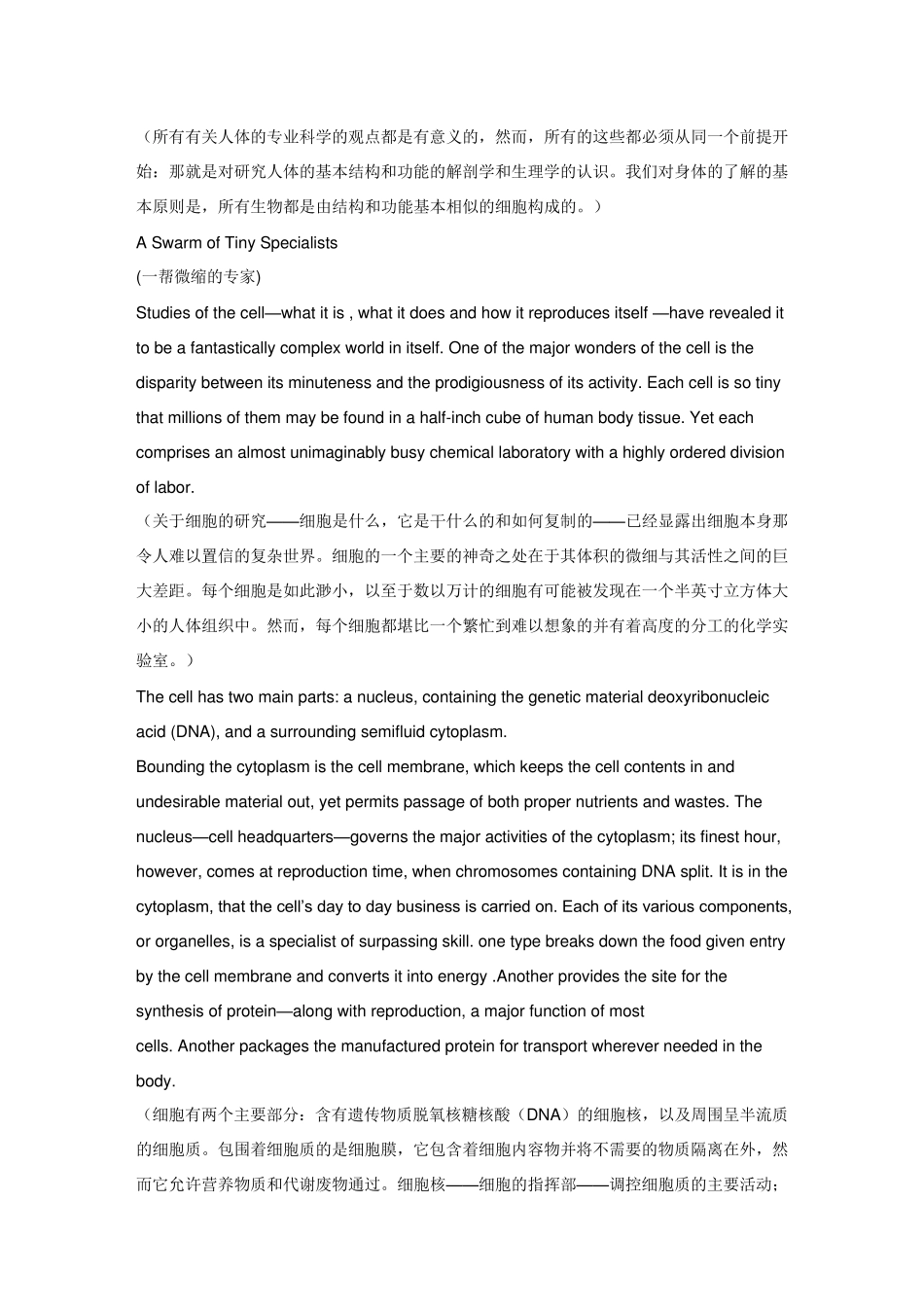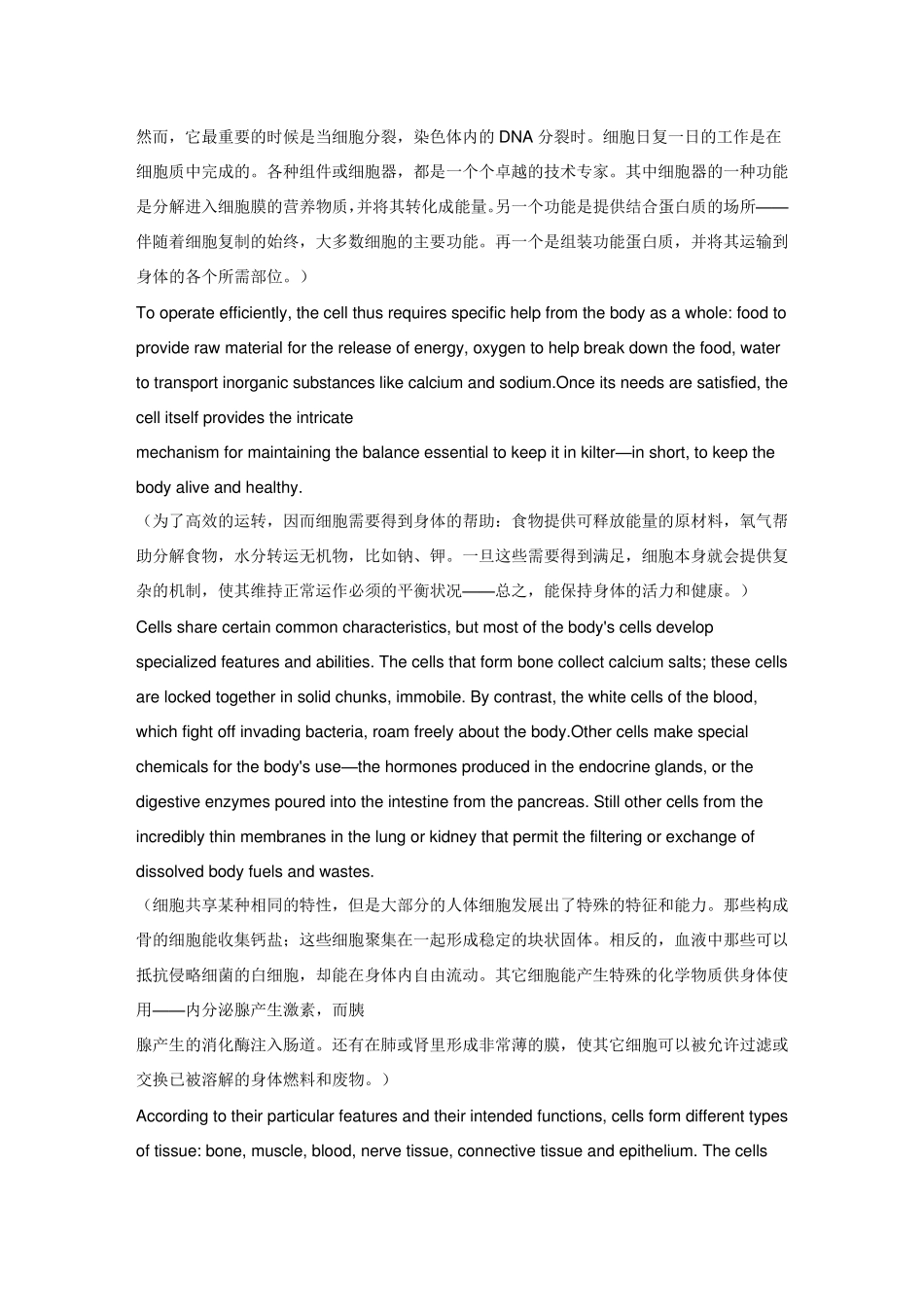Unit 1 Reading A The Human complex— A Never –failing Source of Wonderment (人类的复杂性——一个永远不会失去惊叹的话题) “ In my view, ” wrote Thomas Jefferson in 1814 , “no knowledge can be more satisfactory to a man that of his own frame, its parts, their functions and actions. ” Distinguished thinkers before and since Jefferson have held this belief, but curiously, it is not one that the average person wholeheartedly shares.Man’s attitude toward his own body—his single most precious possession—is decidedly ambivalent. At one and the same time he is fascinated by it and fearful of it, partly in echo of ancient taboos, partly in the conviction that the body is too complicated to understand. ( “在我看来,” 托马斯杰佛逊于1814 年写道:“对人来说,没有什么知识会比了解自身的架构、部件、功能和作用更能使他满足。” 包括杰佛逊在内的杰出思想家均持有这个观点,但有趣的是,这个观点并不为普罗大众所由衷地接受。人们对自己的身体,这个对他自身来说最为宝贵的财富,态度其实是充满矛盾的。一方面,人们被肉体的奥妙所深深着迷,另一方面,却又对其深感敬畏,这在一定程度上与远古的忌禁遥相呼应,也在一定程度上反映了人们确信肉体过于复杂而难以理解。) The possible approaches to a study of the body are legion.To the cynic, the body is no more than a tenement of clay; to the poet, a palace of the soul; to the physician, an all-too-ailing hulk. The psychiatrist sees it as a housing for the mind and personality. The geneticist sees it as a perpetuator of its own kind.The biologist sees it as an organism which can alter the future as a result of the experience of the past. ( 研究人体的途径可谓纷繁多样。对愤世嫉俗者来说,人体贱为粘土陋室;对吟诗作赋者来说,人体尊为灵魂的宫殿;对救死扶伤者来说,人体悲为脆弱多病的躯壳。 精神病学家视其为思想和性格的居所。遗传学家当其为自我繁衍的机器。生物学家视其为能...


